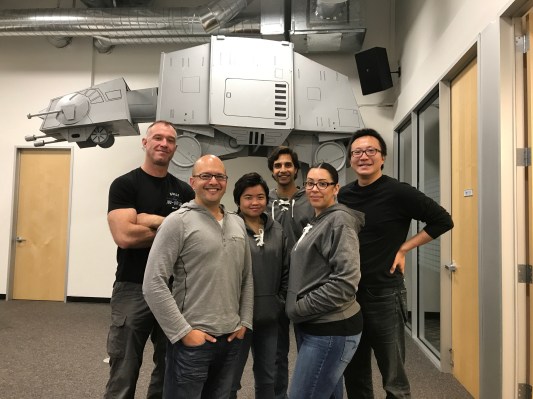Deep Sentinel, a home security startup, today announced that it had closed a $7.4 million Series A led by Shasta Ventures with participation from Bezos Expeditions, Lux Capital and UP2398. Founded by serial entrepreneur David Selinger, Deep Sentinel is betting that its emphasis on user experience can provide needed differentiation in the crowded space.
Over tea in the historic Palace Hotel in San Francisco, Selinger laid out the philosophy behind his latest company. Selinger believes that the nature of property crimes has changed. Without ever entering a home, burglars can cost homeowners thousands by simply nabbing an Amazon delivery resting on a front porch. This shift in behavior necessitates a shift in the services provided by home security companies.
But legacy players like ADT, founded in 1874, haven’t kept up with the times. Selinger is confident he can both expand the market and steal market share by moving the security line to the perimeter of a property rather than the perimeter of a home.
To do this, the company is producing a series of cameras powered by deep learning that can evaluate threats on a property. This is the same technology that automakers are using for self-driving cars and companies like Facebook use to identify people and objects within your photos.
Deep Sentinel wasn’t able to show us its hardware because it’s still in development, but I’d imagine it looks exactly like any other home security camera. Cameras themselves are largely commoditized, so the value that the company delivers will come from its software.
The system is designed to consume video streams and other contextual information to analyze threats facing a home. Selinger was clear in articulating that Deep Sentinel is not simply a monitoring solution, it’s designed to respond and ultimately deter criminals. This could include appropriately applied warnings or lights. The company actually considered using drones for deterrence, though Selinger now believes the technology is still too nascent.

Meeting David Selinger, founder of Deep Sentinel over tea in the historic Palace Hotel in San Francisco.
Selinger is entering a crowded market — Camio’s smart video monitor, Hikvision’s Intel Movidius-powered cameras, Netatmo’s Presence and many others deliver some degree of intelligence to the camera, but the key to Deep Sentinel is its comprehensiveness and user experience.
Any developer with a Saturday to kill can build a rudimentary object classifier with a neural network and any startup with a few million can buy its way to a fairly solid machine intelligence product. But technology doesn’t sell, products do. Using deep learning as a sales tactic is a waste of everyone’s time. You wouldn’t put a Qualcomm Snapdragon on a Nokia 3310 and expect it to compete with an iPhone.
This is why Selinger is focused on using his technology to address core customer concerns like privacy and cost. By optimizing to reduce the computational load of Deep Sentinel’s deep learning models, Selinger and his team have been able to do most of their processing locally.
While customers will be able to customize their cameras, Deep Sentinel’s hardware will be pre-trained before delivery. Moreover, the cameras have been designed to work together so analysis only has to be done in the portions of a video feed where a threat is occurring or likely to occur.
This not only reduces the cost for the consumer, because they don’t have to be responsible for a hefty cloud computing bill, but it also means users don’t have to share as much private information in the cloud.
Jason Pressman, a Partner at Shasta Ventures, told me that he was surprised at both the size of the home security market and the inadequacy of existing solutions. Shasta is no stranger to consumer connected hardware companies. It was one of the early investors in Nest, a success the firm surely hopes Deep Sentinel can replicate next year when it’s product comes to market.
